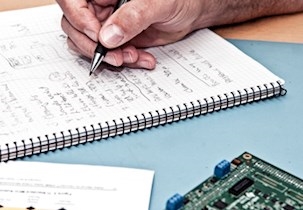SPM then, now and in the future
SPM is a unique network association where professionals for the past 50 years have created and shared knowledge about what is needed to make products reliable and robust.
“Denmark to be at the forefront in terms of reliable product development” was the driving vision when SPM was founded in 1967. Today, the association can look back at numerous examples of this vision coming true.
In the 1960s, when SPM started, knowledge about reliability was limited. Working with electronic components was an exciting new discipline, but there was a need to develop methods and tests in order to pick out those failures that inevitably arose with the application of new technologies.
Right from the start, SPM has worked on building up and sharing information about reliability at network meetings, seminars, and in SPM reports, which over time have grown to more than 180 reports.
The experience exchange groups are SPM’s backbone
The experience exchange groups, where like-minded professionals share specific and relevant information with each other, have always been one of the cornerstones of SPM and act as the backbone of the organisation. Personal relationships are created in these experience exchange groups that build upon mutual trust between the members, something that makes SPM unique and is the reason why the experience exchange groups continue to be successful and affiliated.As an association it is important that we continue to nurse our experience exchange groups. With time some of the groups have been disbanded, e.g. ‘passive components’, while others have formed in the wake of technology developments.
Driven by passionate minds
SPM is run by people with strong commitment to their discipline. Throughout the years, these experience exchange groups have been run by one passionate professional after another, who have made them inspiring and exciting to be a part of.FORCE Technology has been the anchor point for SPM since 1984 and facilitate the association. Many of FORCE Technology's reliability experts have contributed with key knowledge to SPM’s members and helped to disseminate important information about reliability to the outside world.
Over the course of the past 50 years, a string of researchers and experts have contributed enthusiastically with theoretical as well as practical information about reliability. For example, we benefit greatly today from professor Jørgen Møltoft’s diligent efforts in developing a theoretical foundation for reliability.
SPM’s vision for the future
We have come far in what we know about reliable product development over the past 50 years. Reliability remains a current topic and will continue to be in the future, in line with the increasing complexity of products, which will be part of more complicated cohesive systems.Historically, reliability has often been the primary focus in testing. Looking ahead, there is a growing need to work more proactively and focus on how knowledge of failed mechanisms (Physics of Failure) can be used in the design process, so that designers can hit the mark more often with the first prototype.
Many R&D departments have started to simulate product reliability early on in the development process and use computer simulation tools to predict things like airflow and moisture build-up in devices. We are also seeing a tendency towards reliability being built into the design of electronic devices themselves, and concepts such as ‘Predictive & Preventive Maintenance’ are becoming increasingly widespread. SPM will follow these trends and ensure it modernises its reliability tools and methods correspondingly, in order to help companies continue to be competitive in the field of product reliability.


